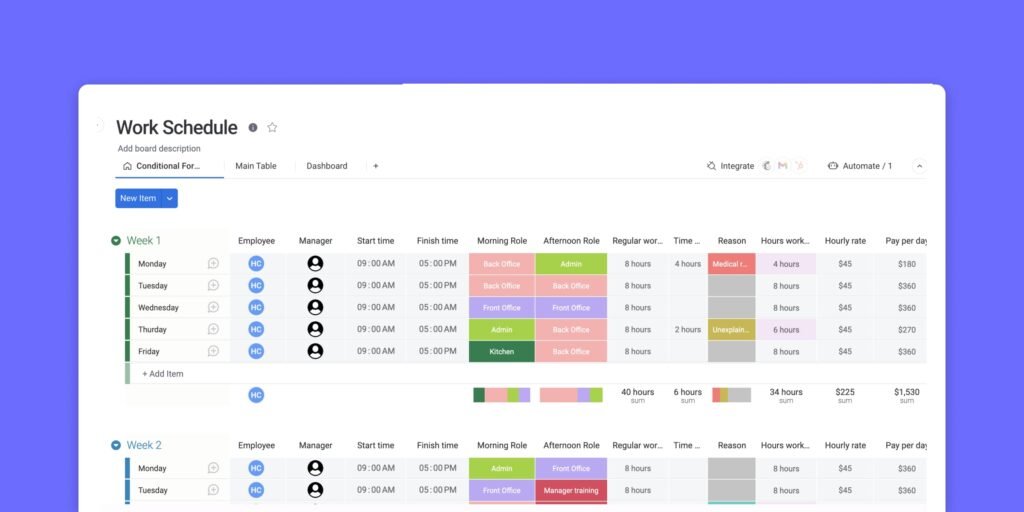How to Manage Workload and Stress at University: A Comprehensive Guide for Students
University life can be one of the most exciting chapters in your life, filled with opportunities to learn, grow, and build lifelong connections. For freshers, in particular, this is a time of discovery, especially during Freshers Week, when the excitement is at its peak. However, it can also bring its fair share of challenges, particularly when it comes to managing your workload and coping with stress. The pressure of academic deadlines, social commitments, and perhaps a part-time job can often feel overwhelming. But fear not – with the right strategies and mindset, you can balance these demands effectively while maintaining your well-being.
This guide provides actionable tips to help freshers and first-year students manage their workload and stress at university. By implementing these techniques, you’ll not only improve your academic performance but also enhance your overall quality of life.
1. Plan and Prioritize
Create a Study Schedule
One of the most effective ways to manage your workload is by creating a detailed study schedule. Use a planner or digital tool like Google Calendar, Notion, Monday or Trello to map out your week. Include:
Lecture times and tutorials.
Study sessions for specific subjects.
Assignment deadlines and interim milestones.
Time for personal care and relaxation.
Prioritize Tasks
Adopt a system like the Eisenhower Matrix to categorize tasks:
Urgent and important: Do these immediately.
Important but not urgent: Schedule these for later.
Urgent but not important: Delegate or minimize.
Neither urgent nor important: Consider eliminating.
By focusing on what truly matters, you’ll avoid wasting energy on low-priority tasks. Freshers Week can be busy, but proper planning ensures you enjoy it without falling behind academically.

2. Break Down Large Tasks
Big projects and assignments can seem daunting, especially for first-year students unfamiliar with university-level expectations. Break them into smaller, manageable chunks:
Start with brainstorming or research.
Create an outline or plan.
Work on one section at a time.
Set mini-deadlines for each stage.
Tips for Staying Motivated
Reward yourself after completing each milestone, such as watching an episode of your favorite show or enjoying a snack. Visualize the satisfaction of submitting a polished project to stay on track.
3. Practice Time Management
Use the Pomodoro Technique
This technique involves working for 25 minutes followed by a 5-minute break, with a longer break after four sessions. It helps maintain focus and prevents burnout. First years often find this approach useful during Freshers Week when time is tight.
Eliminate Distractions
Identify what disrupts your productivity – whether it’s your phone, noisy roommates, or a cluttered workspace. Use tools like Forest or StayFocusd to minimize digital distractions and establish a quiet, organized study environment.
Plan Ahead
At the start of each week, list your tasks and allocate specific times for each. This ensures you’re prepared and reduces last-minute stress.
4. Learn to Say No
University life often comes with a fear of missing out (FOMO). For freshers, this is particularly true during Freshers Week, when there’s a constant stream of social events. While it’s important to socialize and make memories, recognize your limits. Politely decline invitations later in the year if you need to focus on studies or self-care. Saying no to others means saying yes to your priorities.
Assertive Communication
Practice polite but firm ways to say no, such as: “I’d love to join, but I need to finish an assignment tonight. Let’s catch up later this week.”
5. Stay Physically Active
Physical activity is a powerful stress reliever and productivity booster. Aim for at least 30 minutes of exercise most days. This could be:
A gym session.
A brisk walk or jog around campus.
Joining a sports team or fitness class.
Simple Ways to Stay Active
If you’re pressed for time, take the stairs instead of the elevator or do quick stretches between study sessions. Even small amounts of movement add up. Freshers often find group activities like yoga or dance classes a fun way to stay active.

6. Maintain a Healthy Lifestyle
Eat a Balanced Diet
Proper nutrition fuels your brain and body. Incorporate:
Whole grains, lean proteins, and healthy fats.
Fruits and vegetables.
Adequate hydration.
Limit caffeine and sugar, which can lead to energy crashes and irritability.
Get Enough Sleep
Sleep is crucial for memory consolidation and stress management. Aim for 7-9 hours per night. Stick to a consistent sleep schedule, even during Freshers Week.

Avoid Overloading
Don’t overbook your days. Leave time for meals and relaxation to prevent burnout.
7. Build a Support Network
Connect with Peers
Form study groups or find accountability partners who share similar goals. They can provide encouragement, share resources, and make learning more engaging.
Seek Help When Needed
Don’t hesitate to reach out to:
Academic advisors for guidance on managing your course load.
Counseling services if stress becomes overwhelming.
Professors or tutors for help with challenging material.
Join Campus Communities
Participating in clubs or organizations can help you build friendships and relieve stress through shared activities. Freshers Week is the perfect time to explore these opportunities.
8. Practice Mindfulness and Relaxation Techniques
Mindfulness helps you stay present and reduces anxiety. Try:
Meditation: Apps like Headspace or Calm can guide you.
Deep breathing exercises: Practice inhaling deeply for 4 seconds, holding for 7 seconds, and exhaling for 8 seconds.
Yoga: Combines physical movement with mindfulness.
Progressive Relaxation
Tense and release each muscle group in your body, starting from your toes and moving upward. This technique can be especially helpful before sleep.
9. Take Breaks and Reward Yourself
Schedule Downtime
Taking breaks is essential for maintaining focus and avoiding burnout. Use breaks to:
Go for a walk.
Listen to music or a podcast.
Spend time with friends.
Reward Achievements
Celebrate milestones, no matter how small. Finished a tough assignment? Treat yourself to something you enjoy, like a favorite snack or a night out during Freshers Week.
Rotate Activities
Switch between tasks to keep your mind fresh. For example, alternate between reading and writing.
10. Manage Expectations
Be Realistic
Set achievable goals and recognize that perfection isn’t necessary. Focus on progress, not perfection. Some days will be more productive than others, and that’s okay.
Embrace Flexibility
Life is unpredictable, and plans may need adjusting. Stay adaptable and reframe setbacks as opportunities to learn and grow.
Track Progress
Keep a journal to monitor your achievements and identify areas for improvement. This can boost motivation and provide clarity.
11. Utilize Campus Resources
Most universities offer support services for students, such as:
Academic workshops: Covering time management, study skills, or essay writing.
- Health and wellness centers: Offering counseling or stress management resources.
Career services: Providing guidance on internships or job placements.

Leverage Technology
Many campuses also provide access to software or online tools that can enhance your productivity and organization. For freshers, these resources can be invaluable.
12. Reflect and Adjust
Regularly evaluate your workload and stress levels. Ask yourself:
What’s working well?
What’s causing stress?
What can I change to improve my experience?

Build Resilience
Embrace a growth mindset and view challenges as opportunities to develop new skills. Over time, you’ll become more confident in handling stress and workloads.
Conclusion
Managing workload and stress at university is a skill that takes practice and persistence. For freshers, the transition to university life can be overwhelming, especially during Freshers Week. However, by planning effectively, prioritizing self-care, and utilizing available resources, you can navigate this challenging period with confidence. Remember, your university experience is about more than just academics – it’s a time for personal growth, exploration, and building a foundation for your future.
Start implementing these tips today and enjoy a more balanced, fulfilling university life. Freshers, you’ve got this!


